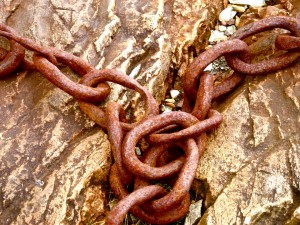generosity
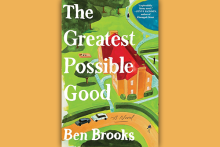
WHAT’S THE BEST use of our lives? Should we, as Jesus advises in Matthew 19, sell our possessions and “give the money to the poor” in hopes of a “treasure in heaven”? Or can we interpret this verse in a slightly less extreme way, instead holding up Jesus’ words as a sort of aspirational metaphor?
This question is at the core of The Greatest Possible Good by Ben Brooks.
We meet the Candlewicks, a wealthy but disaffected family of four living in the idyllic Cotswolds in England, surrounded by every luxurious distraction they could desire. Their lives change drastically when the father, Arthur Candlewick, falls into an abandoned mine shaft, sustaining a head injury. While stuck there for three days with his son’s stash of drugs and his daughter’s book on effective altruism, Arthur experiences what he calls his “road to Damascus moment.” The ordeal transforms Arthur, leading him to give away his entire fortune to charity.
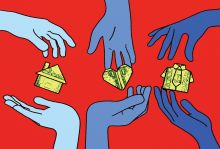
EVERY MONTH, TERRY KELLY sends a “rent” check to the Duwamish Tribe on behalf of Quest Church in Seattle, where Kelly serves as senior director of finance.
The church owns the property where it holds services. But the congregation’s monthly payment acknowledges and honors the Duwamish people and other original inhabitants of the land the church occupies, people who have never been “justly compensated for their land, resources, and livelihood,” as the Duwamish “real rent” program puts it.
Members of Quest Church are among the many people of faith who are reimagining the narrative of money in our world today.
The early Christian church was clear in its teachings that money was intended to be used for the benefit of the broader community, not for individual enrichment. But for centuries, and particularly since the Protestant Reformation, the institutional church has more often contributed to ideologies and illusions that reinforce the American form of hypercapitalism. And while money remains a highly visible reality in our everyday existence, our lived stories around money often go uninterrogated.
In America, our views about money tend to be very individualized. We ask questions such as: How is my money going to work for me? Will I have enough to pay bills or retire comfortably? What is my purchasing power? Even the story churches tell is often limited in scope, reduced to teaching about tithes, offerings, building funds, and missions giving. In some instances, we might see positive moves around personal budgeting and reducing debt. But church conversations about money are often left in the realm of personal finance.
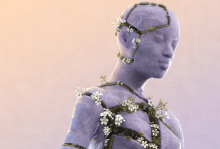
AS WE ENTER the second year of the pandemic, craving juices our throats. We just want to feel alive again: to hear spontaneous laughter and song; to lay our eyes on one another without the mediation of Zoom; to smell a grandchild’s neck without the filter of a mask; to brush against the crowd, breaching the numbness of isolation. We just want to get back to normal, we say. But normal, as science writer Ed Yong observes, is precisely what led to this. Even epidemiologist Michael Osterholm worries that we are “trying to get through this [pandemic] with a vaccine without truly exploring our soul.” Curiously, that puts the depths of soul on the public health agenda.
Insight therapy
COVID-19 has been an epiphany. It has given humanity a first comprehensive, planetary broad brush-up. The pandemic likely was set in motion through ecological disruption, when viruses were loosed from their wild hosts into human sociality, then proceeded to shatter along our nation’s habituated social fault lines—economic, racialized, gendered, and generational.
Every aspect of the coronavirus pandemic first exposed and then exacerbated the United States’ devastating inequalities, reports one investigative journalist after another. The biases of societal racism, classism, and sexism become, in turn, endemic to housing patterns, employment, and access to health care and healthy food. Compounded by the accumulated effects of environmental inequality, such biases become diseases of the body and its generations. Those we cheer on as “essential workers,” the U.S. has come to recognize, were often people whom it first dehumanized—people of color and women working in precarious scenarios of exposure and at low wages. As our planet heats up, each consequent emergency threatens to exacerbate the same fault lines.
While COVID-19 has turned out to be a far more cruciform epiphany than we might have desired, it has, if we are lucky, shaken our sense of invulnerability: Our well-being is entangled, one with another—from how we treat the environment to wearing masks and social distancing. Bodies aren’t born innocent, but from birth carry unequal burdens.
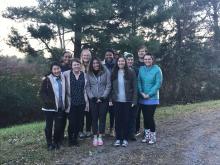
I was the first intern of Cycle 34 to arrive at the Sojourners intern house in Washington, D.C., in August. An incredibly generous staff member picked me up from the airport, drove me the hour back to the house, and left me to settle into my new home (later I learned that this type of generosity was just a part of the job at Sojourners, but that is another story altogether).

We are living in a time of unprecedented economic disparity between the rich and the poor, the haves and the have-nots. Masses live in poverty so that a handful of people can live as they wish. The world’s three richest people own more than the combined economies of 48 countries. The average CEO in the US is making 400 times the average worker.

Even people who knew Anna Kurzweil well wouldn’t have guessed she was a millionaire. She grew up on a farm outside of Kansas City, the youngest of eight children, and entered the convent for a few years but spent most of her life as a schoolteacher. She earned less than $20,000 a year, cared for her elderly mother, and eventually retired — on a pension of less than $1,000 a month. She died in 2012, just shy of her 101st birthday.

Like a lot of people, I love giving presents almost as much as receiving them. And the best gifts of all are ones that come with a clear understanding of the recipient in mind — ones that involve thought and care. Maybe a weird record with cover art only your best friend would love, or a necklace that goes perfectly with your mom’s favorite dress.
But spending that much effort on gifts for every single person on your list can be exhausting. Handmade gifts sometimes take weeks to plan and make in advance, and you don’t always have the time (or gas money, for that matter) to spend an entire day driving all over town searching for the perfect present, as romantic as that sounds.
Luckily, there are plenty of great resources out there to provide you with excellent gifts that give back. You can find some of them listed in Sojourners’ Just Giving Guide, which offers options ranging from clothes and jewelry to coffee and pecans (yes, pecans!). And if you just can’t find that special something, there are also plenty of choices for giving a donation in honor of a friend or loved one.

James was playing cards with several other nursing home residents in a room that doubles as their dining area. The “stakes” for their game was a stash of candy from a Christmas party earlier in the day. He saw me and waved me over. James grabbed one of the candy canes in his pile and offered it with his right hand, the one that had L-O-V-E spelled out on the backs of his four fingers with a self-applied tattoo.
“Would you like some candy?” he said.
James was short, thin, in his 40s. His most distinctive features were those homemade tattoos on his fingers, hands and forearms. And the outline of a metal plate protruding from his lower right leg.
An auto accident left the leg mangled. He didn’t have medical insurance to cover the enormous hospital bills. He couldn’t stand on the leg as it healed, so he lost his job as a cook. And soon, his apartment. He was living on the streets, sharing needles and drugs to deaden the pain in his leg. He wound up sharing someone’s AIDS as well.
But that’s not why he was dying. He’d developed cancer. There was nothing they could do.
I got to know James as part of my work as a hospice volunteer. He only slowly warmed to me — all that time on the streets made him wary of people and their motives. He didn‘t trust very much.
But now he was offering me a candy cane.

AS A NATIVE KOREAN who has studied and taught in the U.S. for more than 13 years, I feel like I’m always swinging between two lands—neither giving me a sense of home. Nostalgia might be too gentle a word to describe this in-between space. Rather, it’s a bitter and unpleasant reality constantly reminding me that to some I appear “strange,” “irregular,” “awkward,” “unskillful,” or “suspicious.” In this situation, I remain “unnatural.”
I often feel the same way in the church. My ethnicity and gender are considered marks of “otherness”—even in my own denomination. Every waking moment I wrestle with this question: How can I incorporate my body, my culture, my language as a Korean woman theologian fully into the body of Christ? This wrestling, while uncomfortable, also prevents me from settling with easy or convenient answers. Perpetual dislocation leads me to pay attention to the unseen and unheard corners of the world. It demands I examine old convictions and construct a creative space for new ways of thinking about God, life, and the nature of justice and hope.
The majority of our biblical stories come from people who were also living outside their own land. They too were in some way dislocated. The biblical texts this month call particular attention to their emotions, tensions, and challenges. They invite all of us to feel lost with them, to tremble with them, and to be courageous with them.

If I were a tree
I would like to be
A giving tree.
Leaves a peaceful green,
Birds could sit and sing,
Children laugh and swing
Upon my branches.
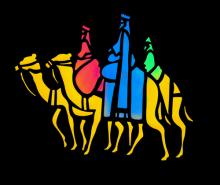
"NO ONE SPEAKING by the Spirit of God ever says, 'Let Jesus be cursed!'" insists Paul in his first letter to Corinth (12:3). Driving through Corinth not long ago, I found myself musing about the extraordinary spirituality that had grown up in the church he was trying to straighten out. Apparently, ecstatic worshippers caught up in charismatic excitement on the Lord's day were actually known to blurt out these shocking words: "Anathema, Jesus!" In a very brief period, the church there had come up with a mutation of the gospel in which only the cosmic, exalted savior, known through speaking in tongues and exciting miracles, mattered. The earthly person of Jesus of Nazareth had been a mere husk to be shucked off, they said. Only the Spirit-giving celestial Lord mattered. Jesus be damned! His teachings back in Galilee signified nothing; now they could concentrate on the prophecies that came hot and strong from heaven through the church's prophets—a belief that left plenty of room for all sorts of wild ethical "experiments," to put it mildly.
Well, no one actually utters "Let Jesus be cursed" out loud anymore, but, in a more subtle way, how prevalent is a pseudo-spirituality that relativizes the radical teaching of the reign of God! These readings bring us back under the authority of Jesus' witness in Galilee—and the reality that there is no Spirit, and no spirituality, except the one we receive as the driving energy to bring good news to the poor.
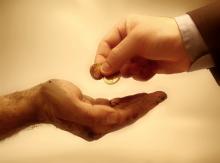
Atheists and others who don’t adhere to a religion often say they can be good without God. Now, three new studies appear to back them up.
Researchers at the University of California, Berkeley conducted three experiments that show less religious people perform acts of generosity more from feelings of compassion than do more religious people. The findings were published in the current issue of the online journal Social Psychological and Personality Science.
Their results challenge traditional thinking about what drives religious people to perform acts of kindness for others.
“The main take-away from the research is that there may be very different reasons why more and less religious people behave generously, when they do,” said Robb Willer, an assistant professor of sociology at Berkeley and a co-author of the studies.
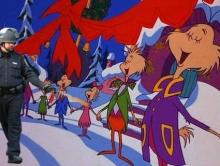
Pepper spray.
Those two words bring to mind two very contrasting images from recent headline news: One is the shocking image of University of California at Davis students seated on a pathway, arms linked in peaceful protest, as they are repeatedly doused with pepper spray by a zealous campus police officer. The other is of the equally zealous shopper on Black Friday who sprayed her fellow Walmart customers so she could buy a discounted X-Box.
On the one hand we have an image of the power of nonviolent protest to expose injustice, and on the other an appalling image of consumer greed.
These are the signs of our times.
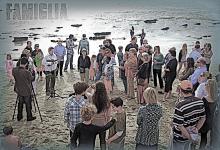
To me, "unexpected" is at the heart of how I understand grace. It is the unearnable gift, the divine reversal and sacred surprise, the still small voice that drowns out the din of the maddening crowd, the little bit extra that my Cajun friends call lagniappe, the very thing we "deserve" the least but get anyway. From God. From the One who created the world and the audacious, indescribably power of love.
Taking a cue from Nell, here are just a few of the unexpected blessings I am grateful for today:
For God's fingerprints that cover every inch of our world, seen and unseen. And for the moments where I can almost make out the holy whirls imprinted in the sky, the ocean, the sunlight, and on the faces and stories of each of us.
For the generosity and selflessness I see so vividly — all around me, all the time — even in these lean, nervous days. I saw it in Zuccotti Park, where strangers prepared and served food to other strangers. I saw it in the sober faces and strong arms of the men who helped 84-year-old Dorli Rainey to safety after she was pepper-sprayed at an Occupy rally in Seattle. I heard it in the prayers lifted at the White House, at North Park University in Chicago, and in the basement of a church in Spanish Harlem where kind, mighty souls formed Human Circles of Protection last week and stood in solidarity with the poor, the vulnerable, and the least of those among us. I watched it on display at border crossings, immigration rallies, refugee camps in the Horn of Africa, and at a glass blower's studio in my hometown of Laguna Beach where strangers arrived with shovels and wheelbarrows to help dig out an artist and his artwork from the muddy ravages of a flash flood. I saw it in the fresh coat of paint on the front steps of my elderly parents' home in Connecticut that my cousins had applied for them with great care and kindness when my brother and I couldn't be there to do it.
